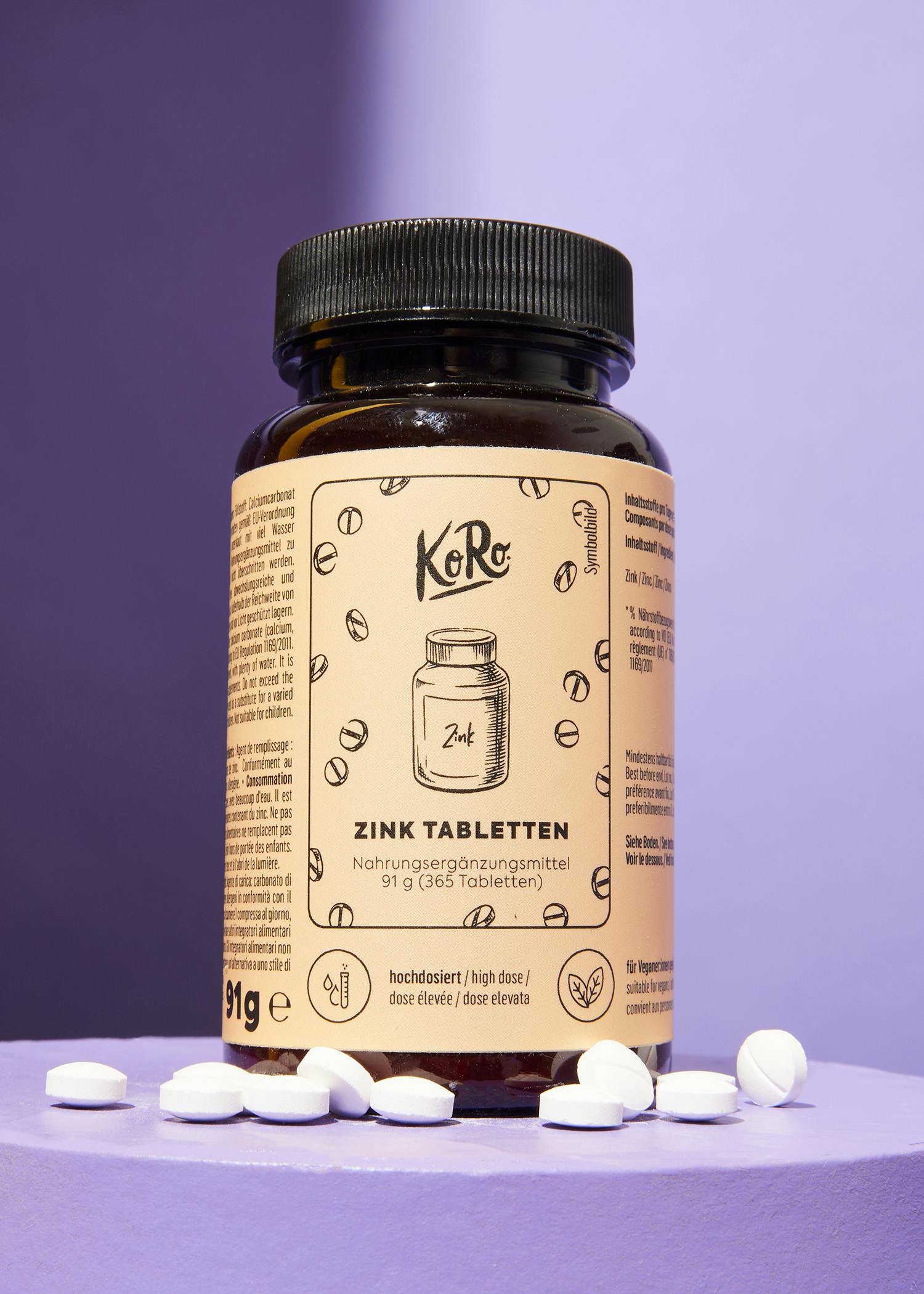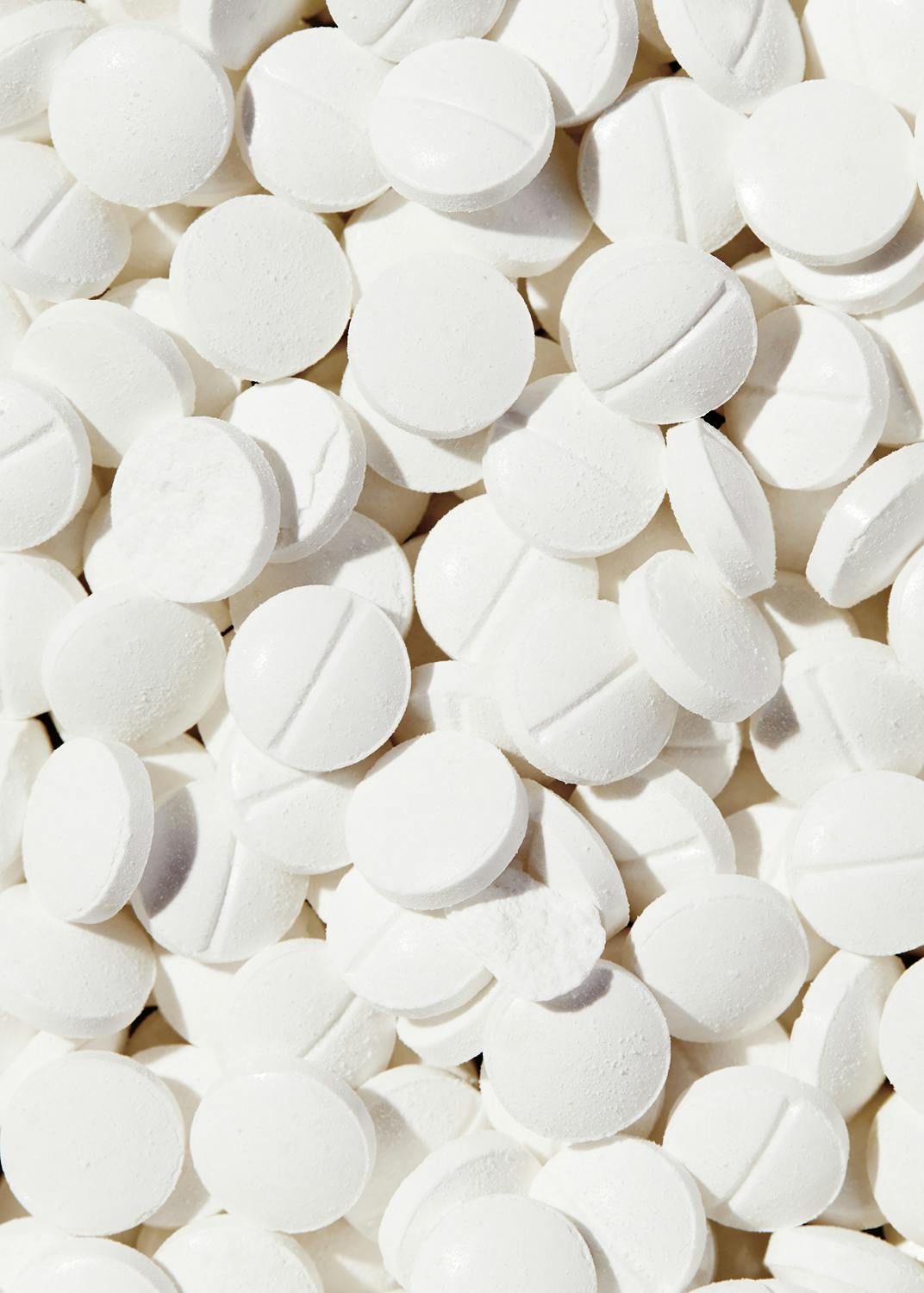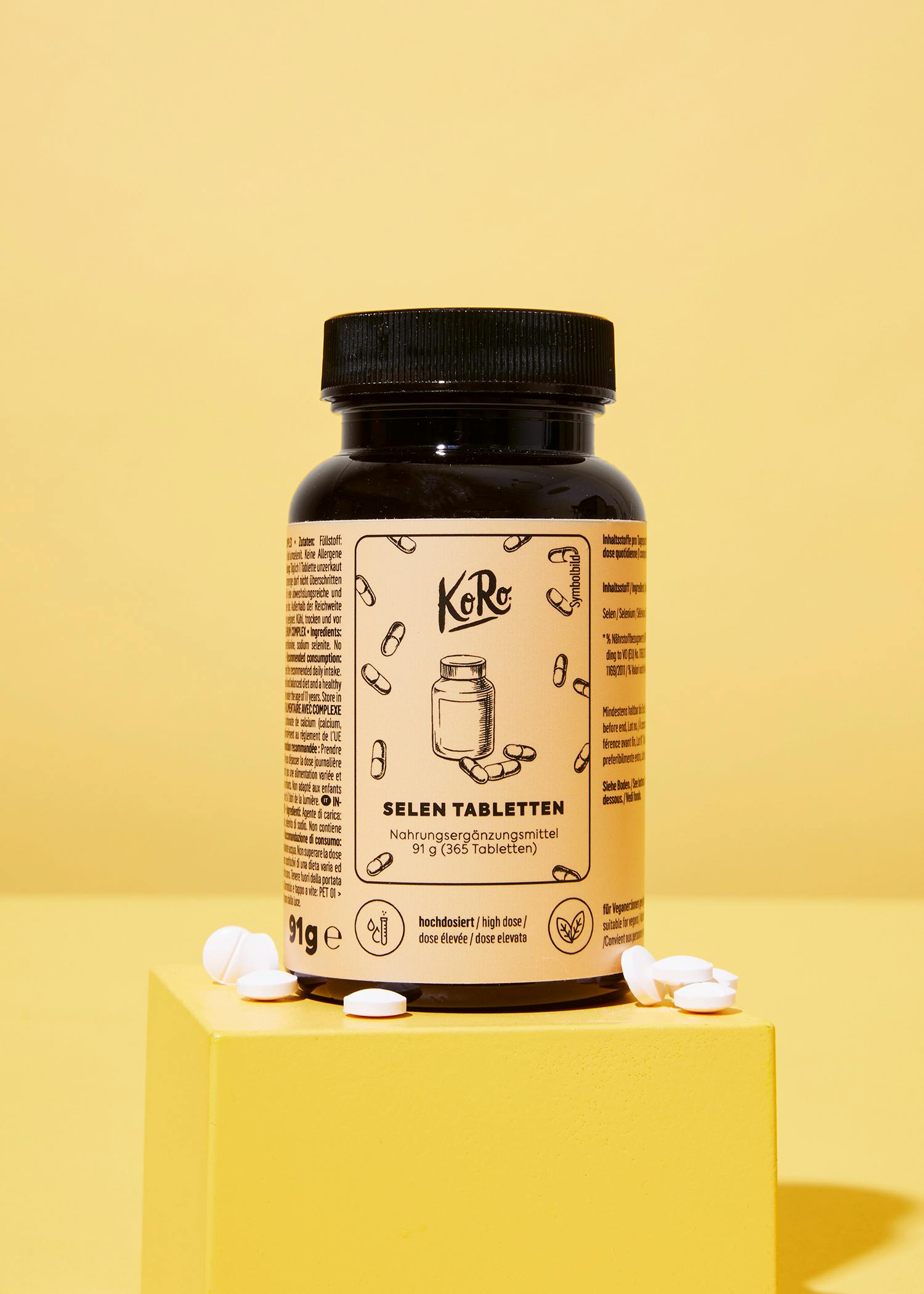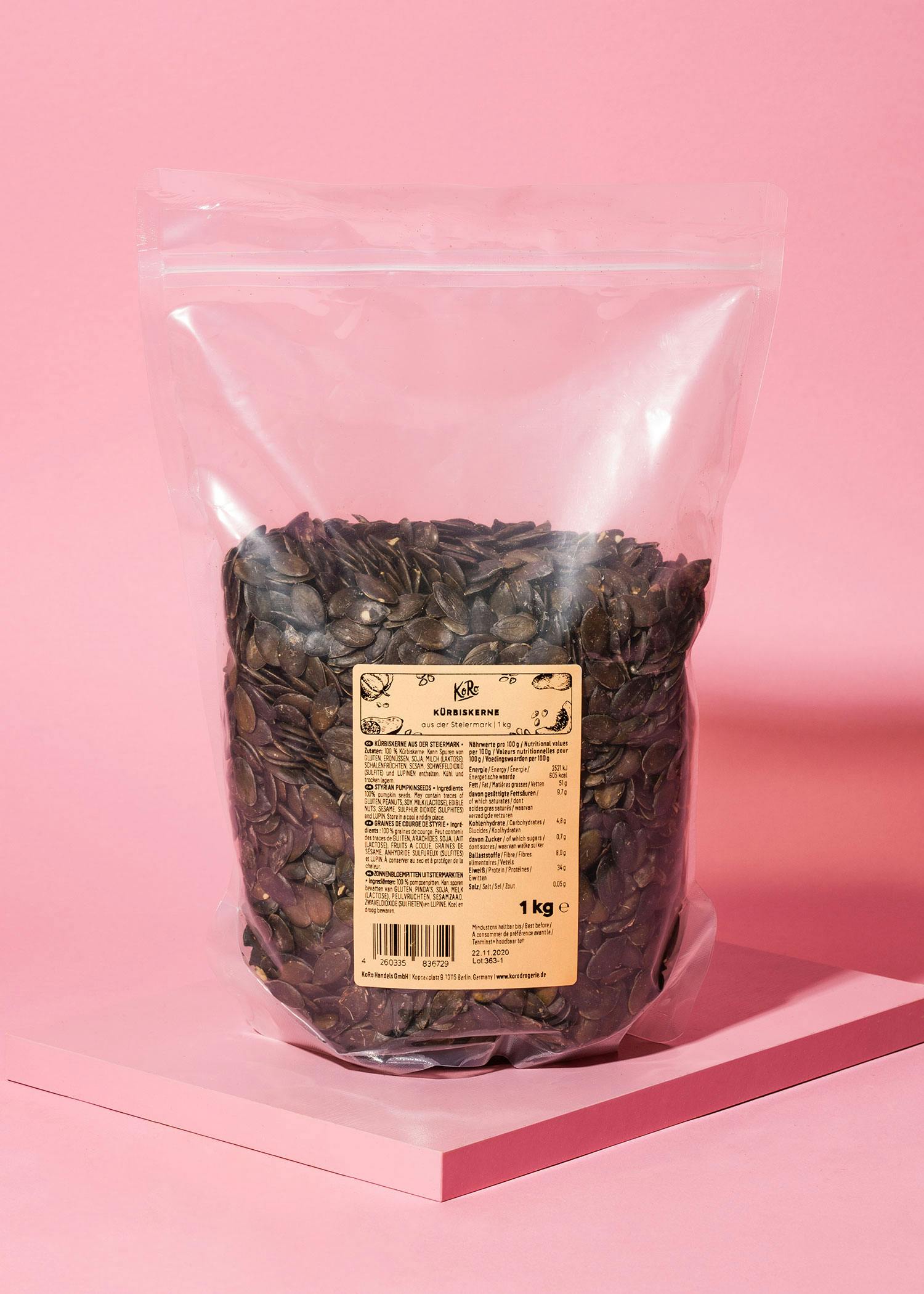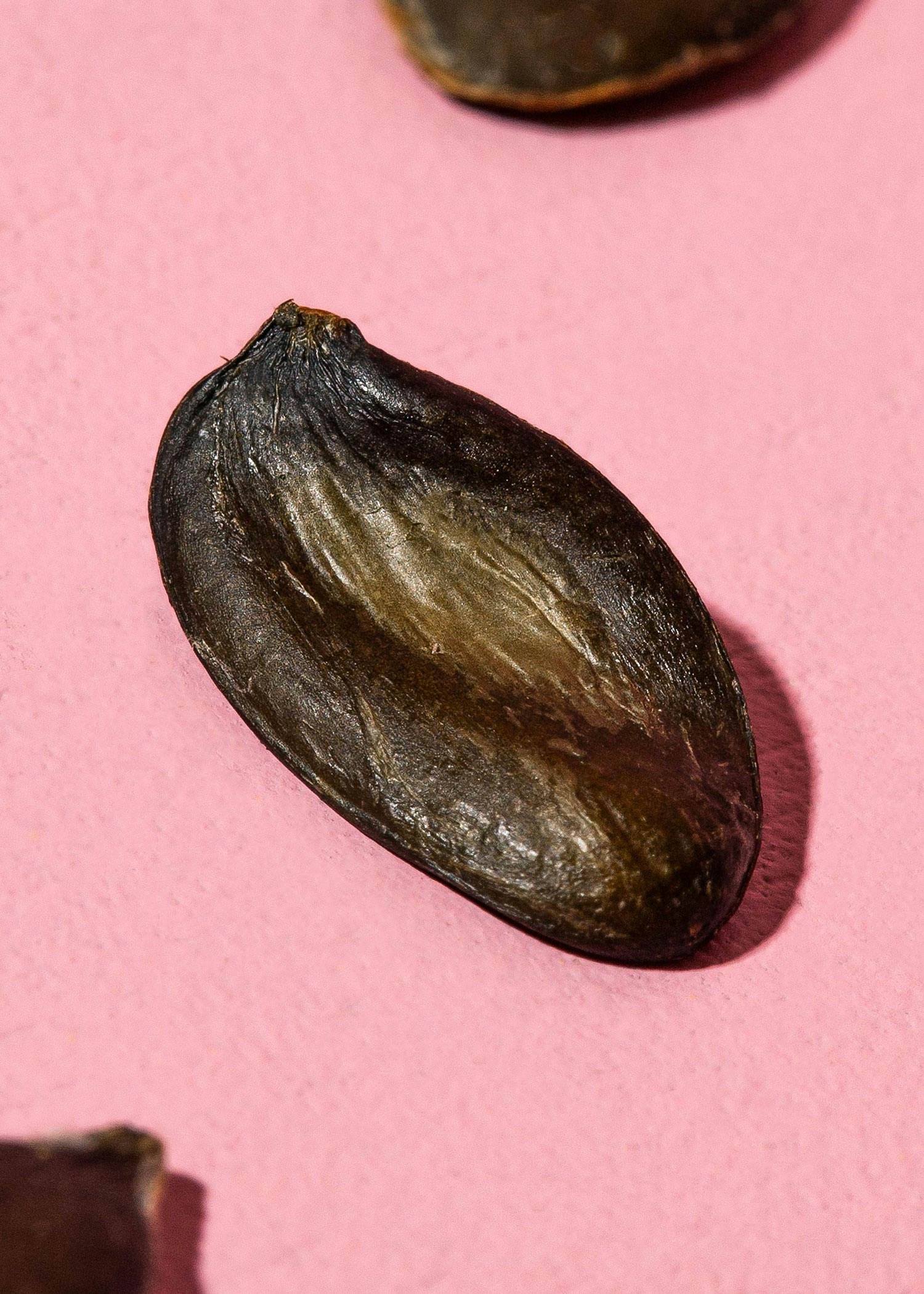What are trace elements?
The minerals calcium and magnesium belong to the bulk elements, as the body needs them in large quantities - logical! Trace elements are also minerals, but you need far fewer of them to cover your needs. Trace elements include iron, iodine, selenium, zinc, fluoride, copper, manganese, chromium and molybdenum. Although you only need them in trace amounts, this does not always automatically mean that you are sufficiently supplied with them. We have compiled a list for you so that you know how to get enough trace elements from your diet.
One thing in advance: before you supplement a nutrient via a dietary supplement, have your blood values checked by a doctor to be on the safe side and seek advice from a nutritionist if necessary.
Iron
Iron is involved in oxygen transport in the body, blood formation and various metabolic processes. Menstruating and veggie people in particular should keep an eye on their iron intake. However, if you suspect an iron deficiency, don't take iron tablets lightly, as an overdose is quickly possible. You can also get your daily 10-15 mg of iron from wholegrain cereals, vegetables, meat, seeds and pulses. Sesame seeds, oat flakes, pumpkin seeds, lentils and tofu, for example, are particularly rich in iron. As a rule, the body can utilize iron from animal sources better than from plant sources. Pro tip: Combine your iron-rich meal with vitamin C, e.g. from peppers or citrus fruits.
Iodine
Iodine is an important component of your thyroid hormones, which in turn are involved in a functioning metabolism. An iodine deficiency initially has unspecific symptoms such as tiredness, but can also become visible in the form of a goitre, i.e. an enlargement of the thyroid gland. The iodine content of food depends on the iodine content of the soil. Bad news: This is quite low in Germany. This is why iodized salt was introduced in the 1980s to prevent iodine deficiency. But dairy products and meat can also provide you with iodine. The prerequisite: the animal feed is enriched with iodine or iodized salt is used in further processing. However, you should avoid too much salt, which is why you can also fall back on natural sources of iodine such as sea fish or algae from time to time. Good-to-know: One nori sheet already covers about half of your daily requirement of 180-200 µg iodine. With algae, make sure that the iodine content is stated on the packaging, as some algae contain very large amounts, meaning that you can quickly ingest too much iodine. Supplements can be useful during pregnancy and breastfeeding after consultation with a doctor.
Selenium
Selenium plays a role in the regulation of thyroid hormones and the production of sperm. Selenium is mainly found in plant-based foods if the soil is rich in selenium - unfortunately this is not the case in Germany either. In this country, the feed of the animals we eat is enriched with selenium, so animal products are a source of selenium. If you eat a vegan diet, Brazil nuts are the only option. The problem with this is that the selenium content of individual Brazil nuts sometimes varies so much that one Brazil nut cannot come close to covering your daily requirement of 60-70 µg or may even greatly exceed it. If you want to be on the safe side and do not consume selenium through animal foods, it can be useful to supplement selenium.
Zinc
Our body needs 7-10 mg of zinc every day for growth, wound healing and the immune system. So how lucky we are that this trace element is found in many foods such as meat, dairy products, wholegrain cereals, pulses, nuts and seeds. Anyone who thinks of phytic acid when they think of wholegrains and pulses can give themselves a quick pat on the back. You are already very well informed! For everyone else: Phytic acid is used by plants to store phosphate and cations such as iron, magnesium, calcium etc., which the seedling needs to grow. However, phytic acid can also bind minerals when absorbed through food - including zinc. The mineral is then no longer available to us. But there is a simple trick: soaking, cooking or fermenting! These processes break down phytic acid and make the minerals more readily available to your body.
Fluoride
Fluoride is important for teeth and bones and can prevent tooth decay. Fluoride is also often found in combination with iodine in conventional table salt. Mineral water, fish and black tea also contain fluoride. But wait a minute: what about toothpaste? Many dental care products also contain fluoride and contribute to the external incorporation of fluoride into the teeth - easy!
Copper, manganese, chromium and molybdenum
There are currently no exact recommended intake levels for these trace elements, only estimates. Copper is important for your iron metabolism, manganese is needed to build cartilage and bones. Chromium is involved in carbohydrate metabolism and molybdenum is a component of numerous enzymes. However, you hardly need to worry about these four trace elements - they are contained in many foods and are usually sufficiently absorbed through a balanced diet, whether purely plant-based or omnivorous.
As you can see, the world of trace elements is diverse and complex! Especially with a vegan diet, iron, iodine, selenium and zinc are considered potentially critical nutrients, which is why you should make sure you get enough. With a colorful variety of foods and our tips and tricks, this usually works well. If you are unsure, be sure to consult a nutritionist and have your blood values checked regularly. This applies in particular to phases of life with increased requirements such as pregnancy and breastfeeding.
